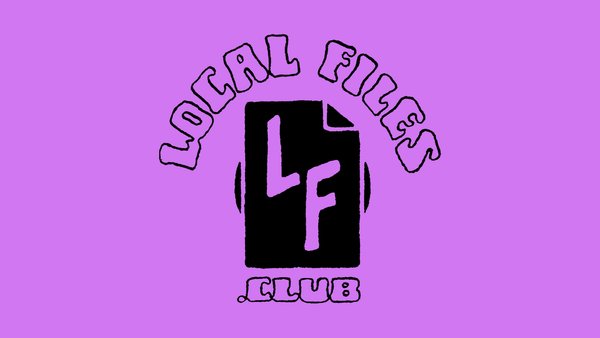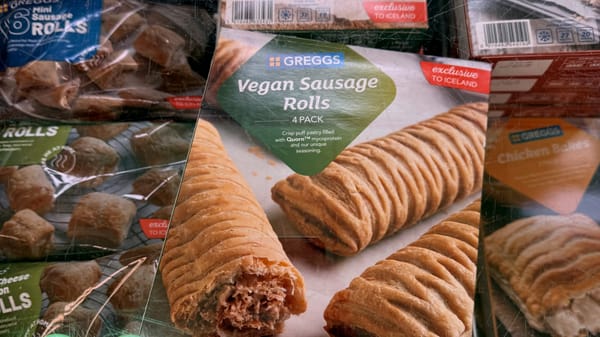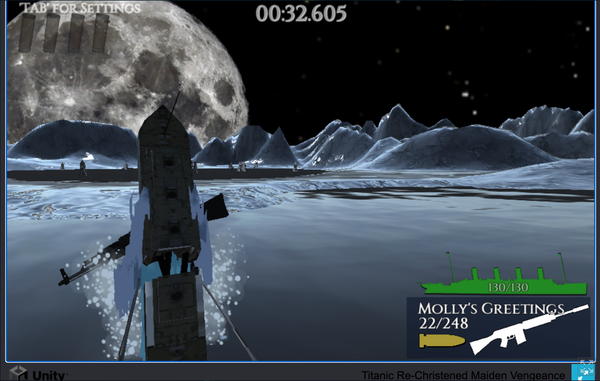Set a play date with Bloom
A look behind-the-code at the first commercially available Playdate game
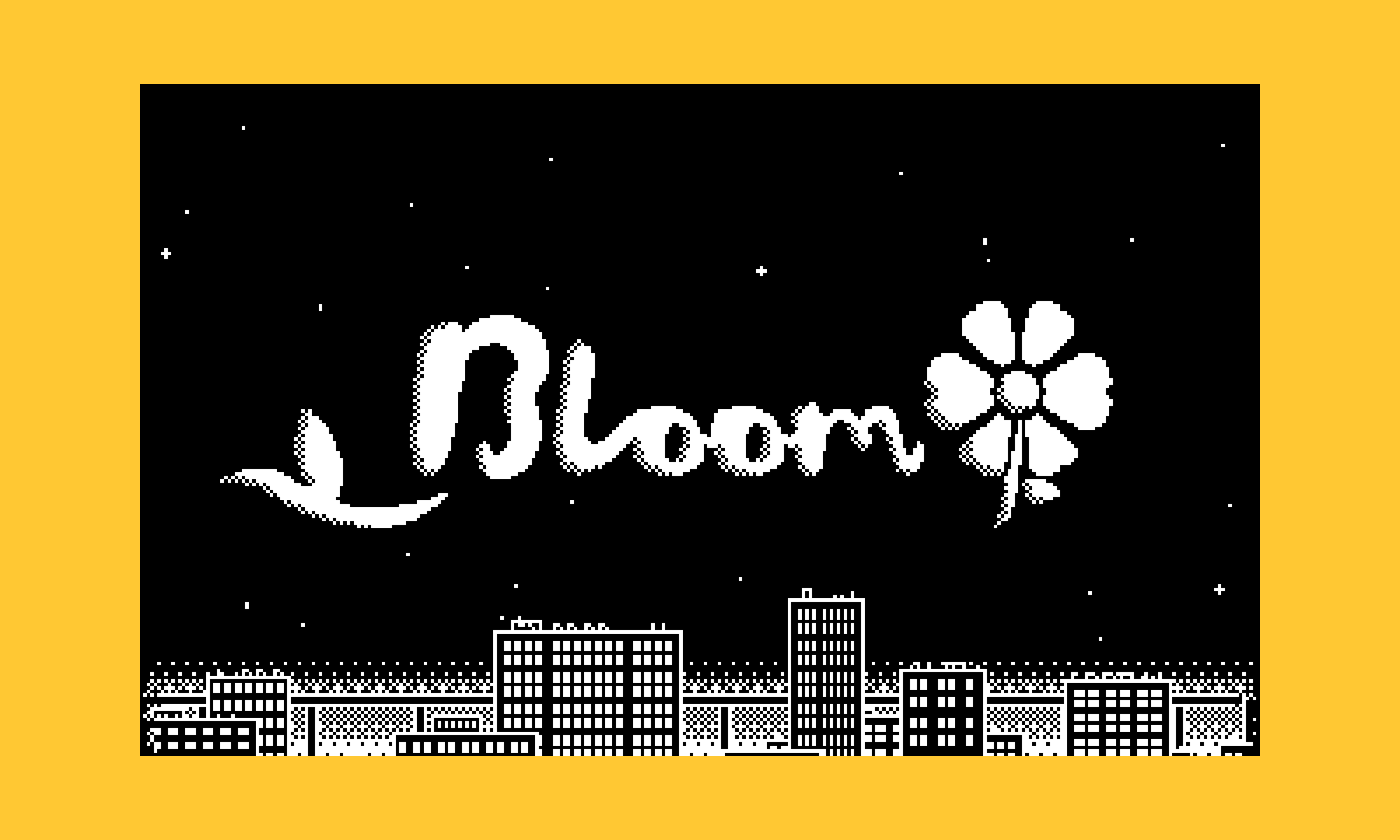
Handheld gaming has had a renaissance in recent years. Between the Nintendo Switch, Valve’s Steam Deck, the Analogue Pocket, and a whole slew of Android-based retro consoles, there’s no shortage of options for the handheld enthusiast.
Missing from today’s crowd is a squat yellow square with a metal crank sticking out of the side. First announced in 2019 and originally set to ship in 2020, Panic’s Playdate captured the imagination of a certain corner of the internet almost immediately upon its unveiling. After numerous setbacks and delays, the Playdate is finally set to make it into consumers’ hands this spring.
With its unique design, created in partnership with Swedish electronics firm Teenage Engineering, and the 25-year pedigree of Panic behind it, the Playdate was always going to have some admirers. But a console lives or dies in the mainstream by its games. Who would care about an exquisitely designed little handheld if there isn’t anything good to play on it?
Panic has tried to account for that in two ways. First, each Playdate comes with a “season” of 24 games, delivered weekly two at a time over the first 12 weeks of your ownership. And these promise to be better than your typical pack-in games; Panic recruited well-known and respected developers like Keita Takahashi of Katamari Damacy fame, Spelltower creator Zach Gage, and Bennett Foddy, the guy who made the extremely difficult browser game QWOP, to make some stunning little games.
Second, Panic has released both an SDK and a browser-based game maker, two tools developers can use to build Playdate games. But with no dedicated game store or established audience, who would take the risk to develop for it?
The folks behind RNG Party Games see it as less of a risk and more of a massive opportunity. The three-person outfit was chosen to be part of Playdate’s developer preview program. With only one full game under their belt—2019’s Backspace Bouken, which is a bit like if Mavis Beacon taught you typing by slaughtering monsters—RNG Party Games knew that they wanted to get something together in time for the Playdate’s launch.
That something turned out to be Bloom, a narrative real-time idle game about a woman named Midori who runs a flower shop. Players will check in on Midori every day, gradually revealing more of the story through text messages that she exchanges with friends and family. RNG Party Games made Bloom available for pre-order in January, making it the first commercially available Playdate game.
A few weeks ago, I talked to Jake White and Ben Busche, two-thirds of RNG Party Games, about their experience developing for Playdate. “We started several prototypes,” Jake told me, though none seemed fun enough to fully commit to. “We really wanted to have something at launch. We were like, no one’s making anything for this, and this a golden opportunity for us.”
The original Bloom prototype was made in under 72 hours as part of the Ludum game jam, though a good amount has changed since then. “We took the content and multiplied that by five,” Jake said, “and then we added a bunch of polish and features. We have a weather system now and a fully-featured arcade mini-game. The progression of the story is more tied into the game mechanics now. We just made it bigger.”
By design, the Playdate limits what kind of games you can make. In terms of processing power, the Playdate is closer to a graphing calculator than your smartphone. There are only two input buttons—A and B—along with the four-way d-pad and the unique crank on the side. And the black-and-white screen is 1-bit, which means there are no shades of gray.
“You’re not afforded any of the benefits color would provide,” Ben told me, “like graying out objects you’re not able to interact with, highlighting objects you want to bring attention to, etc.” But at the same time, Ben found some aspects of development easier. “I personally found that the 1-bit art was a lot easier to quickly make and iterate on than more typical pixel art. It allowed me to get more ambitious than I might otherwise be able to.”
The Playdate also comes with some modern conveniences, like more RAM and a more capable audio system than retro handhelds of old. “It’s all the good things of developing for lower spec hardware without any of the annoying things that would make a game take forever,” Jake said. “From the programming side of things, it’s pretty easy to rapidly prototype stuff. It’s not quite on the scale of being able to toss a bunch of assets in Unity and immediately have a 3D game, but it’s easy enough that you can throw a game together in a day if you know what you’re doing.”
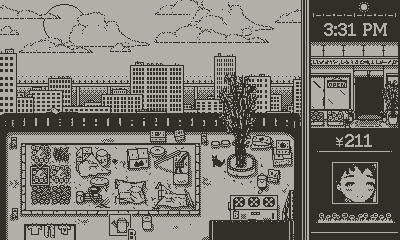
Being able to easily iterate and prototype came in handy as they worked to get the game ready in time for the Playdate’s launch—especially since they, like the rest of the world, only had a general idea of when the Playdate would actually ship. And once the game was complete, there came the issue of actually getting it into players’ hands.
“It was hard to know how to even go about selling a Playdate game,” Jake told me. There’s no game store like on other consoles, no established player base to market to, or even an accepted pricing scheme. “We were really scared about underpricing.”
“We chose to price Bloom at a place where we felt we could help encourage valuing Playdate games like other console games,” Ben added. The team landed at $9.99. While Bloom isn’t the largest game—they estimate it’ll probably take about a month to finish the story if you play a few minutes per day—they felt that pricing it “under $10 might make people feel like larger, pricier games aren’t viable, and we really hope that won’t end up being the case. I’d love to see some real meaty games on Playdate down the road.”
I was curious—with so many unknowns, how were RNG Party Games measuring success? “I do personally have a number where I’d consider it a financial success,” Ben told me. “We’ll definitely be considering Bloom an overall massive success for us whether sales are high or not. We accomplished the goals we set out to and even went a bit beyond them.”
You can pre-order Bloom today at Itch.io, an open marketplace for indie game developers. And if you need a Playdate to play it on, you can pre-order one here (though you likely won’t get it until 2023).

